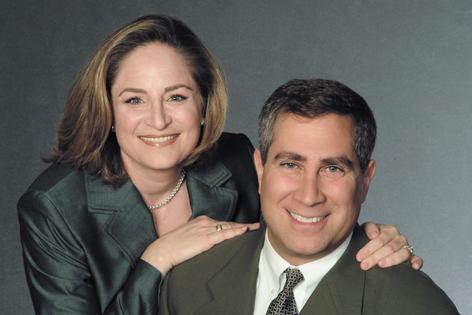How to find information about an old property sale
Q: I’m in desperate need of your help. We bought a property in Virginia back in 2009 and sold it in 2011. We cannot remember the name of the bank where we got the mortgage. We need that information along with all the payment dates from time of purchase to the time we sold the home. What should we do?
A: We wonder why, more than 14 years later, you’d need that information. Too bad you didn’t elaborate in your email. Still, here’s some general advice on how you might go about finding it.
We have to assume that you don’t have any of your paperwork from your purchase of the home back in 2009. In that case, you might want to figure out if you can find any of your tax returns from 2009, 2010, or 2011. Your tax returns for those years might still have the paperwork your lender sent you relating to your mortgage interest payments.
Any documentation sent to you for those interest payments should give you the name of the lender. The form may also show your loan number. However, you might have thrown out your tax documents as well, given that it was so long ago. In that case, your only hope is to get a copy of the mortgage you signed when you purchased the home.
Here’s another place to look. Your local tax records or recorder of deeds office might have all of their documentation online. Find out the name of the government office that handles the filing or recording of documents for the area in which your home was located. It might be the county recorder of deeds office or some other county or municipal agency that handles these documents.
Look for the office’s website. It may allow you to search for documents. You might be able to search using your name or the property address. Hopefully, you’ll find the property you purchased.
Just about all government agencies that handle real estate documents index them by property tax parcel number. Sometimes this number is called the property index number, tax parcel number, or property identification number.
Once you’ve found the property, then look for documents relating to the mortgage you signed back in 2009. You should be able to see the name of the lender and, perhaps, the loan number. With that information, you can call the lender and have them provide you with the information you seek.
Unfortunately, some mortgage documents may not show the name of the lender. Frequently, the name used will be the Mortgage Electronic Registration System (MERS). MERS offers a free tool to search online for the name of the current mortgage servicer for the property, which might not help you but could help other readers. You can search by property address, the borrower’s name and Social Security number, or with the unique Mortgage Identification Number (MIN) listed on the mortgage or deed of trust that was signed at closing.
Three other suggestions: First, you can request a copy of your tax return from the Internal Revenue Service for the years in question. However, if you didn’t itemize your deductions during those years, your tax returns may not help you either.
Next, you might try going to the credit reporting agencies to see if your old mortgage is still listed on your credit history. If it is, you may be able to track down the information from there. To set up a free credit account, go to Equifax.com, Experian.com and Transunion.com. There is no need to provide a credit card or accept any offers from any of the CRAs. Once your account is set up, you should be able to see your past creditors. Bonus: You’ll be able to easily freeze or unfreeze your credit going forward.
Finally, if you still use the same checking account that you used when you had the loan, you can ask the bank to provide you with one or more bank statements for those years. The bank will likely charge you a fee for the search, but your statements or copies of checks that may be in those statements may answer your question as to the name of your lender.
Once you find the name of the mortgage lender, you may discover that they are no longer in business. If they aren’t, do an online search for the lender and look for the bank that may have purchased them.
========
(Ilyce Glink is the author of “100 Questions Every First-Time Home Buyer Should Ask” (4th Edition). She is also the CEO of Best Money Moves, a financial wellness technology company. Samuel J. Tamkin is a Chicago-based real estate attorney. Contact Ilyce and Sam through her website, ThinkGlink.com.)
©2025 Ilyce R. Glink and Samuel J. Tamkin. Distributed by Tribune Content Agency, LLC.

































Comments